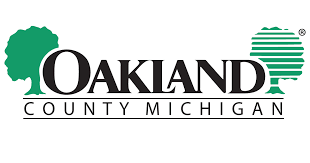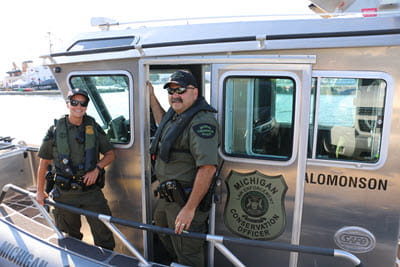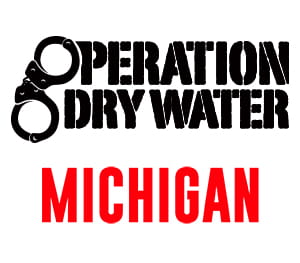Pontiac, Michigan – Eighty-four non-profit organizations whose services were severely impacted by the COVID-19 crisis will share $9.7 million in grants from the Oakland Together Community Response and Recovery Fund, Oakland County Executive David Coulter said today.
The grants, which ranged from $4,000 to $500,000, will help the organizations restore vital services and programs for Oakland County residents such as food distribution, shelter, health care and financial assistance that were reduced or eliminated because of the pandemic. The program was administered in partnership with United Way for Southeastern Michigan.
“This geographically diverse collection of grants will go directly to front-line organizations that provide essential services and programming for nearly 500,000 Oakland County residents, especially during this unprecedented time,” Coulter said. “I’m grateful to the United Way for Southeastern Michigan for doing the administrative ‘heavy lifting’ to move this program along quickly and efficiently and the county Board of Commissioners for funding the program.”
Grant recipients include Jewish Family Service of Metropolitan Detroit, Forgotten Harvest; Easterseals Michigan, Community Housing Network, Pontiac Community Foundation, Arab American and Chaldean Council, Gleaners Community Food Bank, Lighthouse of Michigan, Centro Multicultural La Familia, Micah 6 Community, Oakland Family Services and Grace Centers of Hope. The complete list of grant recipients is found at www.oakgov.com/covid/grants.
Coulter praised the oversite panel of county Commissioners Adam Kochenderfer, Angela Powell and Helaine Zack, who reviewed and approved the grant applications and recommendations.
“A program of this size and scope does not happen without support from many people,” Coulter said. “I appreciate the fine work of Commissioners Kochenderfer, Powell and Zack, who whose commitment will help countless Oakland County residents.”
Zack said the results from the partnership exceeded her expectations.
“Combined, the diverse representation of non-profits that will receive these grants service the entire geographic footprint of Oakland County,” Zack said. “I am proud of how quickly we were able to award funding so that these organizations may continue supporting our residents.”
Grant applicants had to be based in Oakland County or provide services to county residents and be a 501(c)(3) organization. Grants were to be used for costs incurred by Dec. 30, 2020 and ensure operational continuity and expansion to meet growing demand for support services in the county.
The grants will support community non-profits that have been negatively impacted by the shutdown and need assistance re-opening safely under new protocols established by the Centers for Disease Control and Prevention, the state and the Oakland County Health Division. Highest priority was placed on organizations that support the basic needs of county residents, including food, housing, health care (including both physical and behavioral) or financial assistance.
Grants were awarded according to three funding tiers:
- Operational Grants up to $50,000 for direct COVID-19 related expenses and to maintain existing operations during the pandemic.
- Enhanced Operating Grants up to $100,000 for COVID-19 related expenses, those to comply with health orders and new protocols and seek funds to maintain and expand operations to meet growing demand.
- Community Service Grants up to $500,000 to provide service to vulnerable populations and to combat secondary effects of the pandemic. The organization must have an annual operating budget of at least $5 million, reach clients throughout Oakland County, provide services to an expanded population and can demonstrate the ability to deploy the larger amount of funds requested within the spending period.
Funding priorities included:
- Organizations on the frontlines of emergency assistance during the pandemic.
- • Organizations that address critical needs or serve a vulnerable population.
- Organizations providing economic support to individuals or families suffering from employment or business interruptions due to coronavirus-related business closures.
- Direct assistance may include utilities, prescriptions, rent, virtual learning, understanding public health orders and safety protocols, financial counseling.
- Organizations that have a long-standing track record in the community.
- Organizations that have not received federal, state, county, foundation or philanthropic support sufficient to continue providing service in the community. There should be no duplicative funding for the same services provided.
The Community Response Recovery Fund is the latest initiative from Coulter and the board to mitigate the effects of the coronavirus on the economy, businesses, non-profits, communities, veterans and county residents. The funds are part of the Coronavirus Aid, Relief and Economic Security (CARES) Act allocation to the county from the federal government.
Coulter and the board have been aggressive in funding programs and services to help mitigate the economic effects of the pandemic to businesses, communities and veterans, devoting nearly $61 million to the cause and another $32 million awaits board approval.
The county also created and is distributing 10,000 “Oakland Together” COVID-19 safety kits which include facemasks, no-touch thermometers, gloves and sanitizer to give small businesses, faith-based and nonprofit organizations essential materials for reopening and customers confidence they will have a safe experience. The Department of Economic Development & Community Affairs produced another 5,000 kits because of the popularity of the kits.
A kit can be requested at https://forms.oakgov.com/151.







